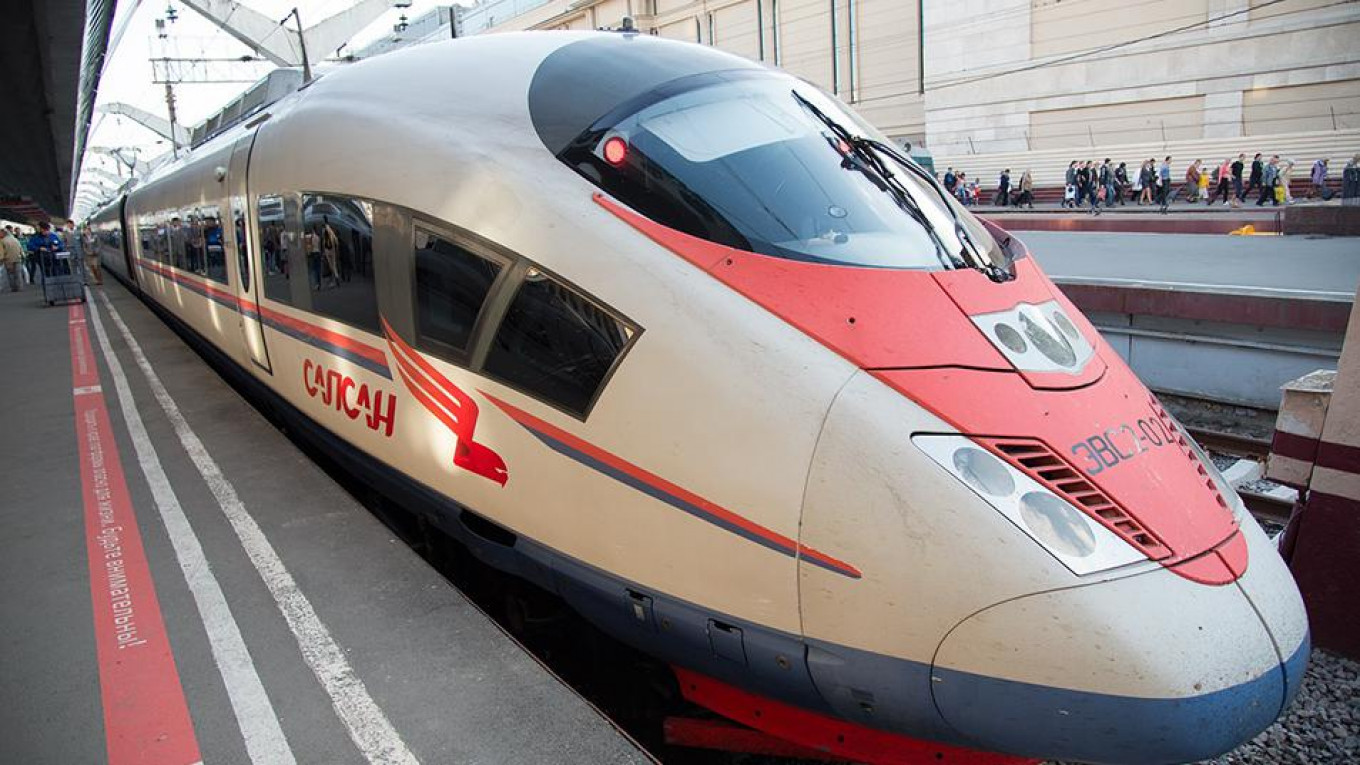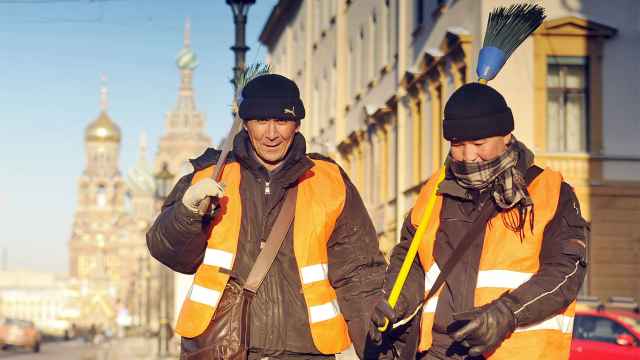The Metro
Though it is not as extensive as the Moscow metro, St. Petersburg’s underground network is the best choice for getting around the city. Some stations open as early as 5:30 a.m. and most stations close around midnight.
The ticket system for the metro of Russia’s second city is rather complex. Special metro coins will get you through the turnstiles at 45 rubles apiece.
You can also buy a plastic card that can be topped up with numerous combinations of tickets and rides.
Ten rides will cost you 355 rubles. Unlimited daily tickets are also available for 180 rubles for 1 day. Putting money on a daily card will bring the cost of the ticket down to 36 rubles if you take up to 10 trips. The more rides you take with a daily card, the cheaper the ride will be.
You can get Mastercard Contactless cards anywhere in the city for 45 rubles a ride.
Trolleybuses, Buses and Trams
Where public transportation is concerned, the metro has the most reliable English-language signage. However, taking trams and trolleybuses will allow for a more enjoyable sightseeing ride around the city. To really take in the view, take the No. 1 trolleybus starting from the Petrogradskaya side.
Alternatively, the 3a tram will whizz you through the tourist hotspots of Nevsky Prospekt, Sadovaya Ulitsa and the summer gardens. Ground transportation costs 40 rubles per ride, or 31 rubles with a travel card or daily card.
Taxis
Uber and Gett provide reliable taxi services in St. Petersburg. Double-check your destination address when using the apps as drivers don’t usually speak English. The oldest taxi service in St. Petersburg can be called at +7 (812) 312 0022; the trip will be cash-only and will cost around 30 rubles per kilometer.
Opening of the Bridges
Getting around St. Petersburg is easy as long as you don’t stay out late. This is due to the opening of the bridges — a daily event that restricts traffic but draws crowds of spectators. Find the schedule online.
Safety
Tourism is booming in St. Petersburg and the city attracts millions of visitors. Take care of your belongings and be wary of pickpockets. Don’t be surprised if you’re stopped on the street by police, who have the right to check your passport, your visa and your registration documents.
Pharmacies
The two biggest St. Petersburg chains are Raduga and 36.6. The latter is self-service and easy to understand. You’ll have to speak Russian at other places. If you fall ill, certain painkillers, anti-fungal creams and medications are sold over the counter in Russia.
Medical Treatment
Three private clinics are known to have English-speaking staff. These are the American Medical Clinic, Euromed, and the Medsi international clinic. Go private whenever you can. Russia has free healthcare and a free emergency care system, but state hospitals are as a rule under-funded.
Grocery Shopping
Head to the Polushka corner stores to grab basic necessities and essentials. Perekrestok — the largest Russian supermarket chain — offers a wider selection of fruits, vegetables, meat and rare species of fish and seafood. The city’s favorite, Stockmann, boasts aisles filled with delicacies and is frequented by more upscale shoppers.
Clothes Shopping
The locals usually shop in neighboring Finland, but the city’s malls are perfect for a spontaneous shopping trip. The Galereya shopping mall is located just outside Moskovsky Station — where Sapsan trains arrive from Moscow. A walk along Bolshoi Prospekt will accommodate the tastes of travelers looking for a bit more luxury.
Repair Services
The Master Minutka repair shops can fix your torn coat, restore damaged sneakers and remove serious stains. This will have to be a chance to practice your Russian, as the staff doesn’t speak English. One workaround: Call your hotel reception and ask them to translate.
Emergency Numbers
If you require urgent assistance from medical services, police or the fire department, dial the free 112 emergency number. The number is accessible both from landlines and mobile phones, even if there is no SIM card or if your number has been blocked. Operators speak Russian and English. The staff at each of the 11 Visitor Information Centers are able to provide guidance to tourists in distress
A Message from The Moscow Times:
Dear readers,
We are facing unprecedented challenges. Russia's Prosecutor General's Office has designated The Moscow Times as an "undesirable" organization, criminalizing our work and putting our staff at risk of prosecution. This follows our earlier unjust labeling as a "foreign agent."
These actions are direct attempts to silence independent journalism in Russia. The authorities claim our work "discredits the decisions of the Russian leadership." We see things differently: we strive to provide accurate, unbiased reporting on Russia.
We, the journalists of The Moscow Times, refuse to be silenced. But to continue our work, we need your help.
Your support, no matter how small, makes a world of difference. If you can, please support us monthly starting from just $2. It's quick to set up, and every contribution makes a significant impact.
By supporting The Moscow Times, you're defending open, independent journalism in the face of repression. Thank you for standing with us.
Remind me later.






